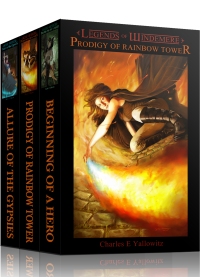
Leorio
I can already sense people heading for the comments to talk about how they hate these types of heroes. They are selfish, arrogant, rude, and/or terrible teammates. You can usually expect them to make the wrong decision if money or fame is promised for that path. How can anyone really enjoy characters like this?
Well, that depends entirely on the author. You can make a vain and greedy hero who wants nothing more than fame and fortune. They are what the reader sees and have no motivation beyond wanting these things. Of course, they can eventually turn more noble and realize that they need to be a role model. They might fail at being a hero because they put money and reputation first, which causes them to reevaluate their choices. That gives them more depth, but it requires that they change to a Hero of Justice or even a Hero for Fun. This doesn’t always have to be the case.
In general, a hero who does things for money differs from a villain because they aren’t willing to break the law. Anti-heroes fall into a gray area here, which I’m saying because I know somebody is thinking about Deadpool. Mercenaries are a weird group that can go either way, so it’s hard to call them full heroes too. A hero who wants money and fame won’t intentional shift to evil deeds because they have limits. They still have a code of honor and some loyalty if they’re well-written. You can shift some of their morality around, but they need to stay on the side of good for the most part to avoid becoming more of a villain.
These types of heroes as have a strange sense of self-awareness if you want them to go the distance. On some level, they are aware that their fame and fortune require a positive public persona. Possibly more so than the Hero of Justice, a Hero for Money/Fame is very concerned with their reputation. If that falls apart, they will no longer have what they want. So, they can be less likely to cause property damage than other heroes because they don’t want to get blamed or forced to pay for the repairs. They can be more likely to put rescuing bystanders above other actions because this will earn them fans who will spread word of their greatness. While their reasons for doing this aren’t pure, these heroes can be designed to have more caution and foresight than their peers.
There are two examples that come to mind when I think of this type:
- Booster Gold– For those who know DC comics (isn’t the repetitive), Booster Gold took a bunch of hero gear from a museum and went back in time. He used his knowledge of past events to be a hero for fame and money. He was arrogant and rather annoying at the start, which also stemmed from being immature. Over the years, he has grown into a more noble and dependable hero. I haven’t read the comics in over a decade, but I remember him saving the multiverse and taking on a Hero of Justice role. This is because he realized there were more important things than money. I don’t remember if he also realized that saving the multiverse could make him famous.
- Leorio Paradinight– This is a supporting character from the manga/anime ‘Hunter x Hunter’. He enters an event called the Hunter Licensing Exam to become an official hunter. This is a dangerous job that can make people rich, which is the reason he risked his life to get it. One of the first quotes from him is, “For the right price, you can buy not only treasures, but dreams, hopes, and even peoples lives!” His goal is to make tons of money, which sounds selfish. That is until you find out his childhood friend died of a curable disease because the family couldn’t afford the medicine. Leorio’s goal is to use the hunter license to help him get into medical school and make enough money to open a clinic where people don’t have to pay to get better. I think he’s a perfect example of a Hero for Money/Fame that has a perfectly good reason to be that way.
So, you can see how a character can start this way and evolve as well as a way to rationalize their desire for fame and fortune. This is why an author has to decide on where the character is going to go when they begin. Do they want them to transform into a more noble hero, keep their motivations for a specific reason, or fall from hubris/greed? If you don’t put some thought into these types of heroes then they have a high chance of becoming fairly two-dimensional and lose their appeal fairly quickly. This can force a change or a retirement, so there’s a benefit in thinking about things first.





As soon as I read the first few paragraphs, I thought of Booster Gold. And then you mentioned him later. 😊😊 There was a great episode in the first season of Justice League Unlimited that made me like him. It seems like quite a balancing act writing this sort of character, and making him or her different from a supervillain, many of whom are usually in it for the money and fame. That’s why I liked Booster Gold. Other heroes made fun of him or were annoyed by him.
I don’t know if Lobo, “The Main Man,” bounty hunter would fall into this category.
LikeLike
Booster Gold had to get mentioned. Though, he’s definitely turned somewhat away from those ambitions. At least from the last time I read comics. Lobo is a weird one because he’s not really a hero. Not even sure he’s an anti-hero. Probably best to simply call him a force of nature.
LikeLiked by 1 person
They don’t have to evolved and improve – they can serve as role models for what NOT to be!
LikeLiked by 1 person
The problem with that is they wouldn’t be good protagonists then. It’s far too easy to have these characters be examples of what not to be, but many readers won’t catch onto that. Showing how a person can evolve from selfishness or how they can still be that way without being evil teaches readers more about the human condition. Take Leorio in the picture for example. He never entirely sheds his ‘greed’ because it’s part of his world-view, but he still shows himself to be a loyal friend and kind person.
LikeLike
I do prefer that version!
LikeLike
Reading this made me think of your character Ichabod Brooks, who works for money because it’s his job and he has a family to support.
LikeLike
He would fall into this category. Not as self-centered as most though.
LikeLiked by 1 person
I like these guys. It seems like we can go off the deep end with them, but a redemption arc is almost built in if we use it.
LikeLike
It’s a fairly simple redemption too. Many ways to do it, but many can understand such a change.
LikeLiked by 1 person
An honest rogue is always better than a doubtful paladin. At least you know where you stand.
LikeLiked by 1 person
Good point.
LikeLike